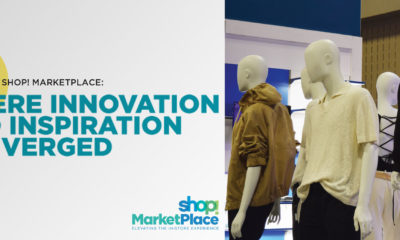Headlines
Open Wide
Albertson's says, 'Aahh – no more mercury thermometers for sale'
MasterClass: ‘Re-Sparkling’ Retail: Using Store Design to Build Trust, Faith and Brand Loyalty
HOW CAN WE EMPOWER and inspire senior leaders to see design as an investment for future retail growth? This session, led by retail design expert Ian Johnston from Quinine Design, explores how physical stores remain unmatched in the ability to build trust, faith, and loyalty with your customers, ultimately driving shareholder value.
Presented by:
Ian Johnston
Founder and Creative Director, Quinine Design
-

 Headlines2 weeks ago
Headlines2 weeks agoNetflix Houses Coming to Dallas, King of Prussia
-

 Headlines2 weeks ago
Headlines2 weeks agoMcDonald’s Axing AI Drive-Thru Test
-

 Headlines2 weeks ago
Headlines2 weeks agoExpress Bought by WHP-Led Group
-

 Headlines2 weeks ago
Headlines2 weeks agoFood Hall Set for NY’s Ex-Lord & Taylor Building
-

 Specialty Non-Apparel2 weeks ago
Specialty Non-Apparel2 weeks agoIf The Shoe Fits
-

 Headlines6 days ago
Headlines6 days agoPerkins Updating Its Restaurants’ Look
-

 Headlines5 days ago
Headlines5 days agoHooters Shutters 40 Restaurants
-

 Headlines1 week ago
Headlines1 week agoTarget Equipping Workers With AI Chatbot

















